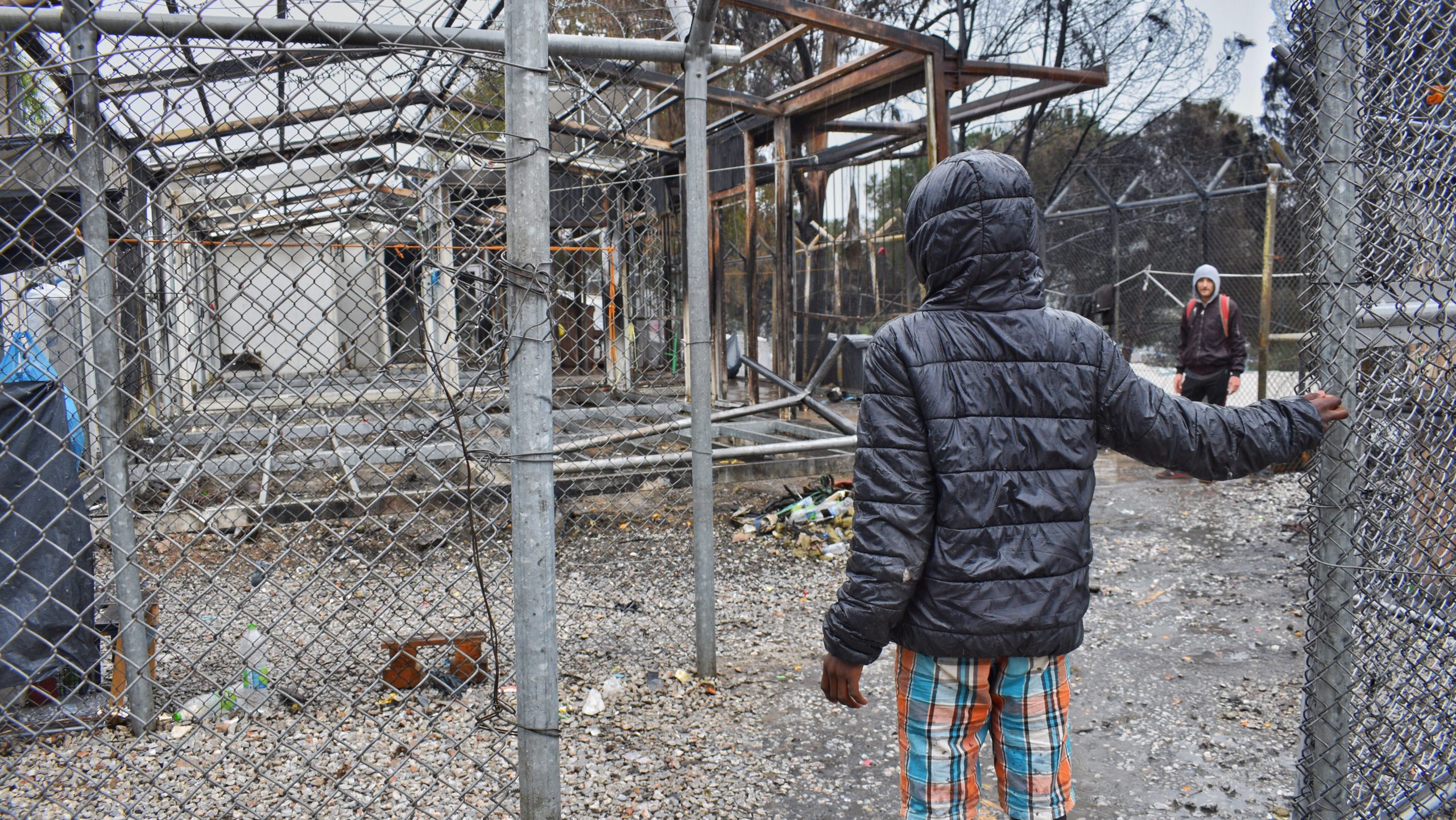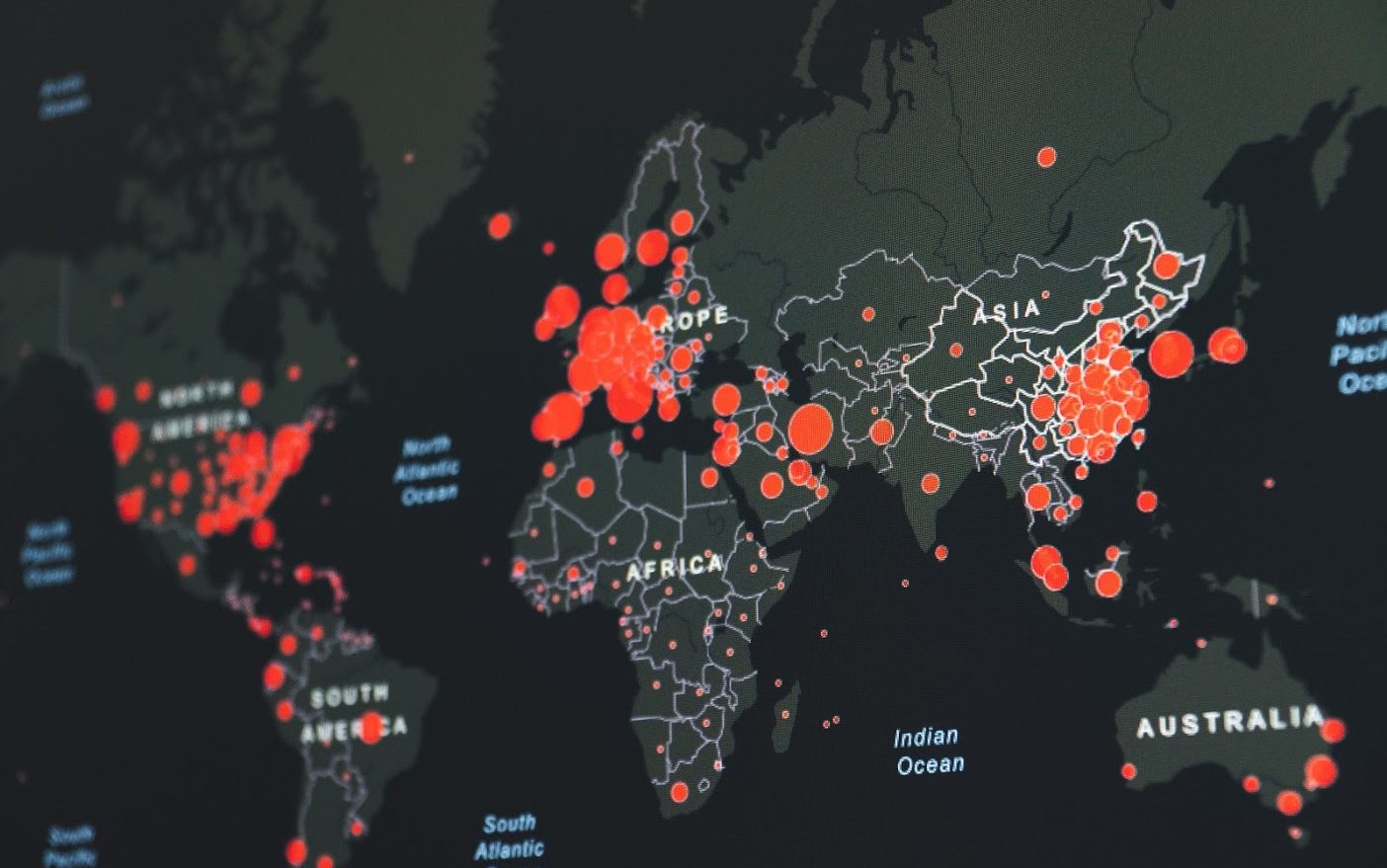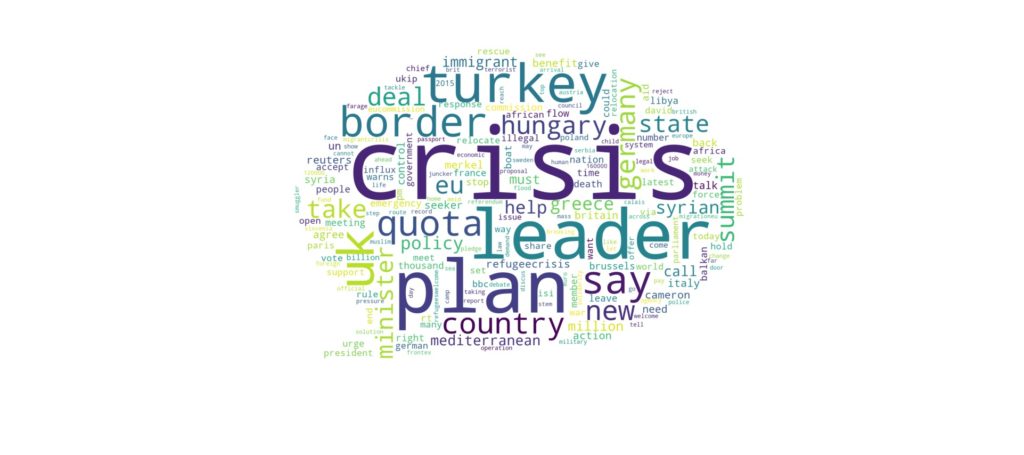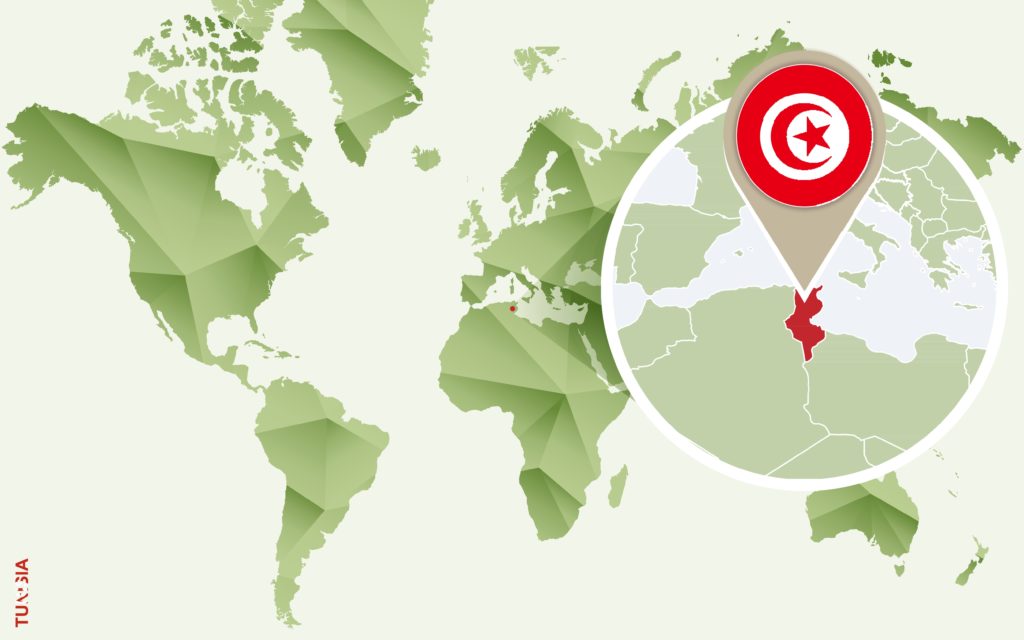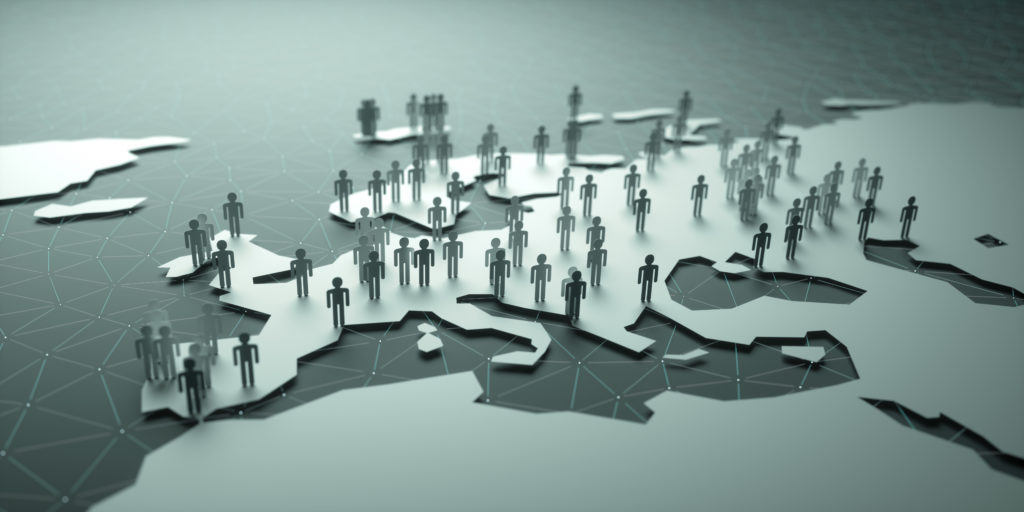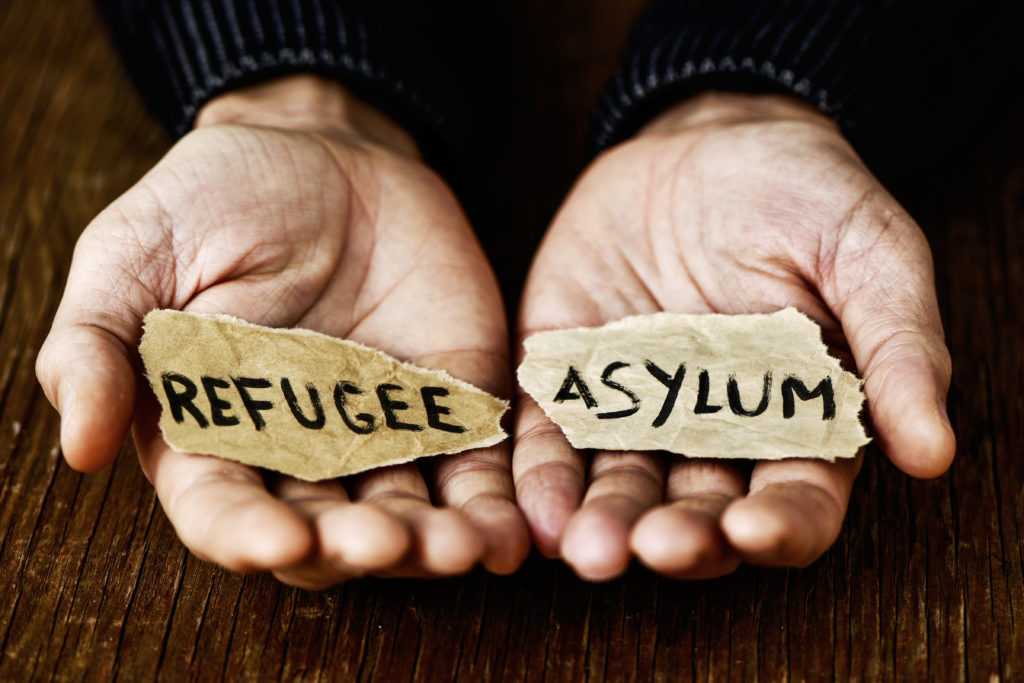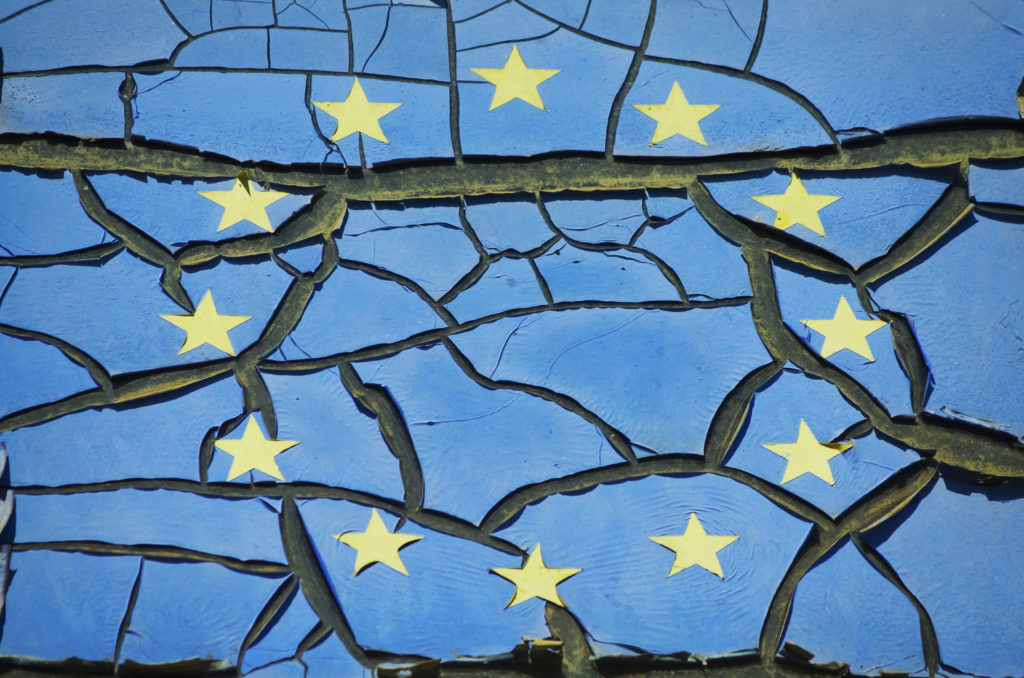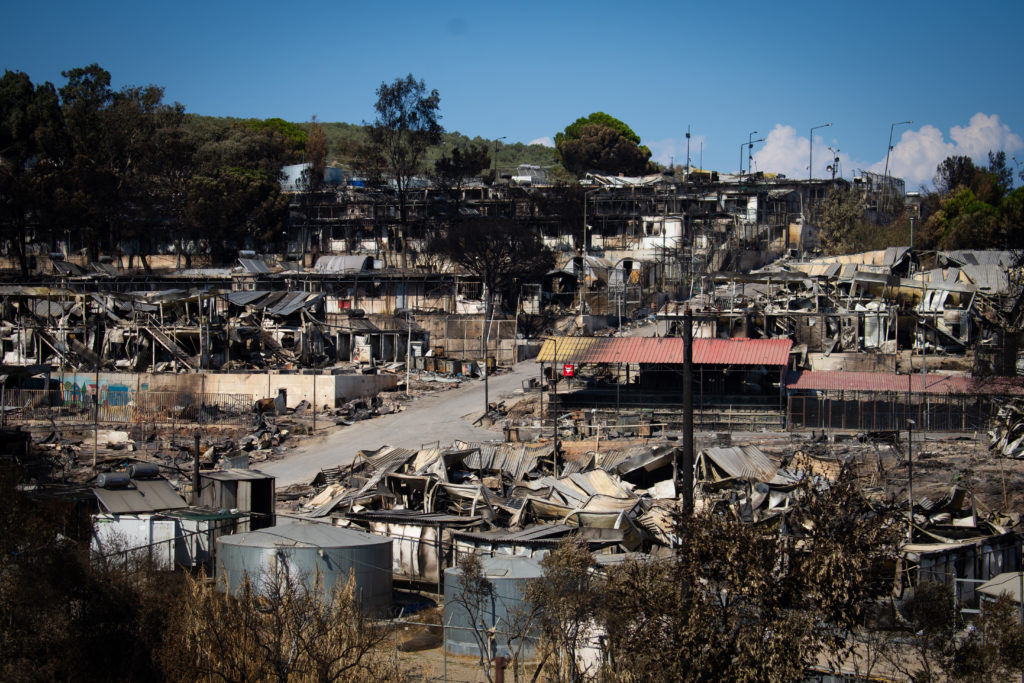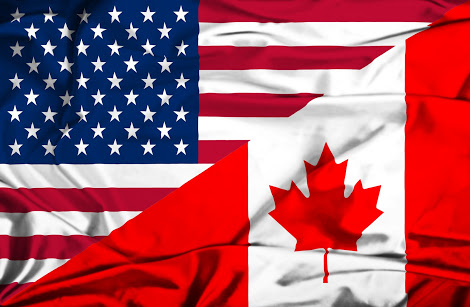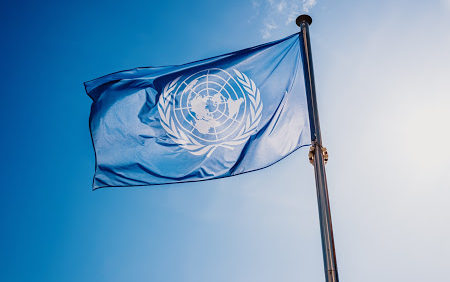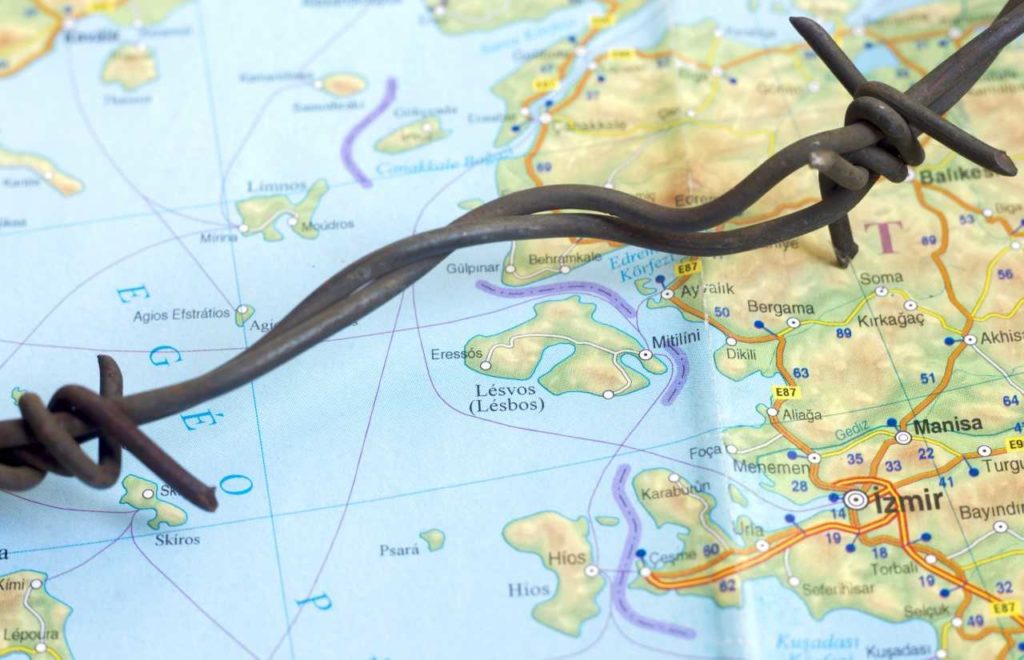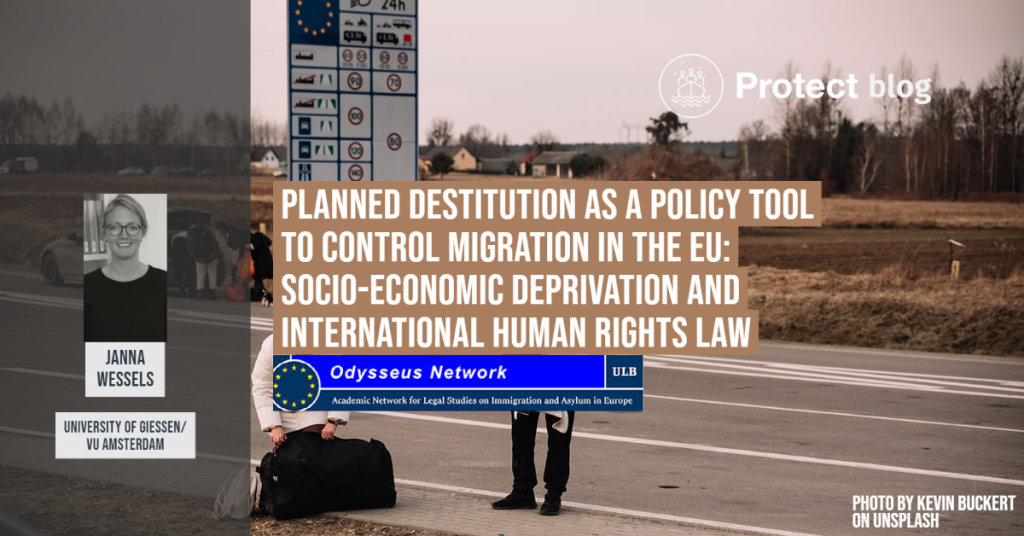
May 2023: The increased use of social and economic exclusion as a policy tool with a view to managing certain groups of ‘undesirable’ migrants is one of the major trends in European asylum and migration policy. While this already occurs under the current legislative framework, the most recent reform proposals tabled by the European Commission appear to tighten such policies. In this piece, Janna Wessels discusses the notion of planned destitution, which refers to situations where social and economic exclusion is used as a policy tool to control migration.
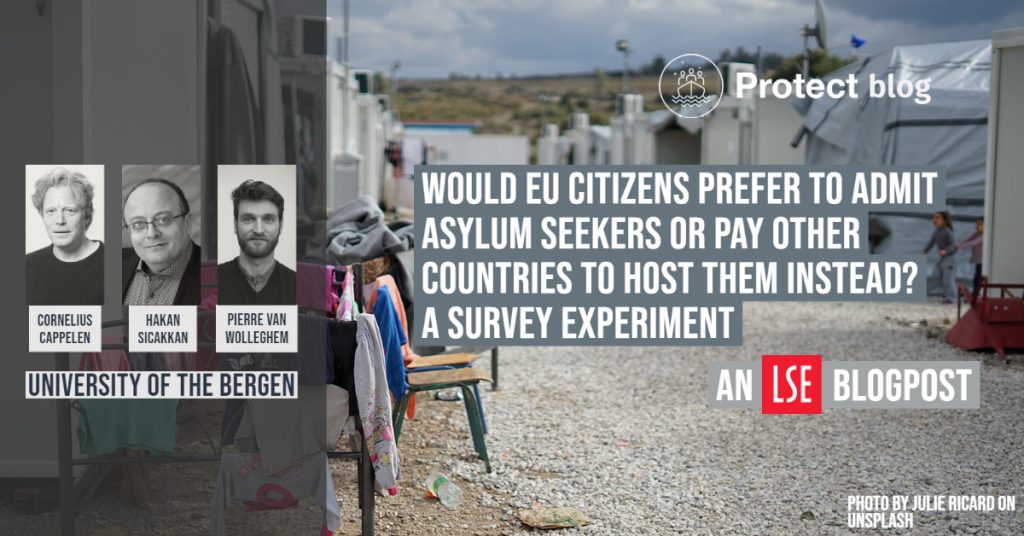
April 2023: The two most prominent ways in which EU states can help refugees is by either admitting them as asylum seekers or by providing financial assistance to host countries. But which of these options do EU citizens prefer? Drawing on new survey evidence, Cornelius Cappelen, Hakan G. Sicakkan and Pierre Georges Van Wolleghem demonstrate that support for admitting asylum seekers tends to outweigh support for external financial assistance. An LSE blog post.
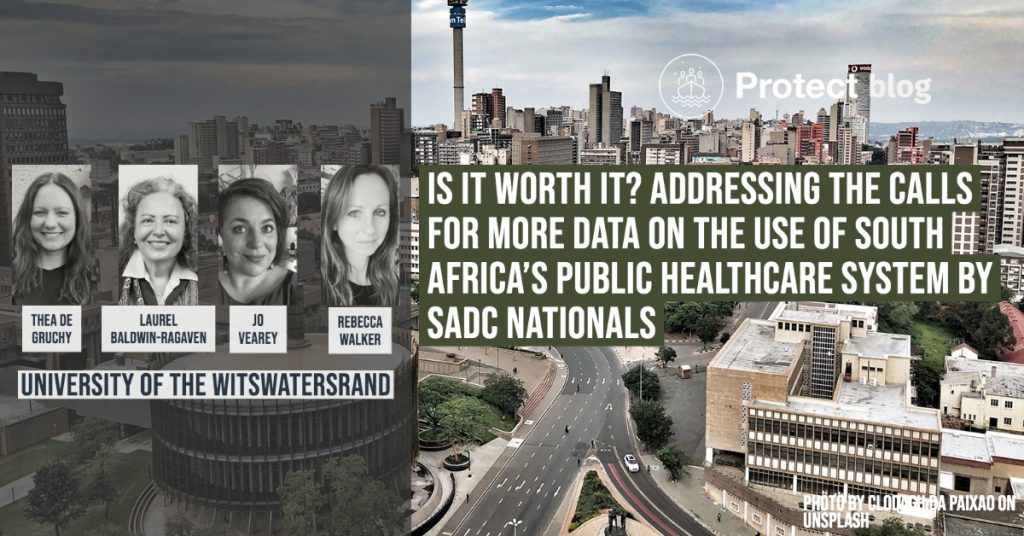
March 2023: Calls for more data by government officials and political parties play a central role in current discussions and debates surrounding the utilisation of South Africa’s public healthcare system by citizens of other Southern African Development Community (SADC) states. However, many of those demanding additional data often overlook or misrepresent what already exists. This happens by inflating the number of SADC nationals living in South Africa; speculating about non-citizens who utilise the public healthcare system; and, suggesting that masses of people travel here for the sole purpose of accessing our healthcare system.

February 2023: “To be true to the objective of resolving the refugee ‘problem’, one has to acknowledge that the refugee regime does not containin itself either the normative or cooperative instruments which will deliver the sought-after permanent solutions.”
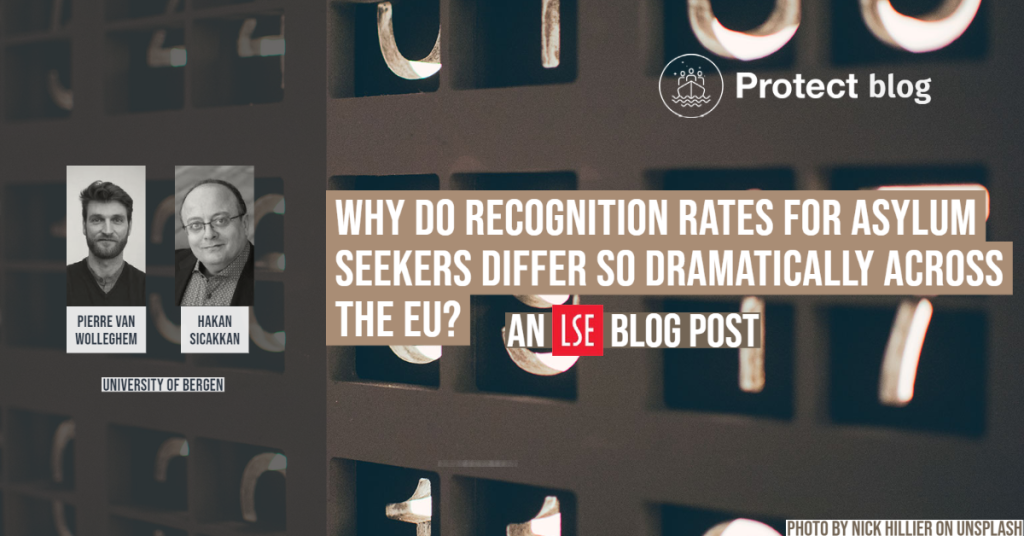
December 2022: Recognition rates for asylum seekers vary significantly across EU states. Drawing on new research, Pierre Georges Van Wolleghem and Hakan G. Sicakkan demonstrate that the competence of a political administration helps explain much of this variance. An LSE blog post.
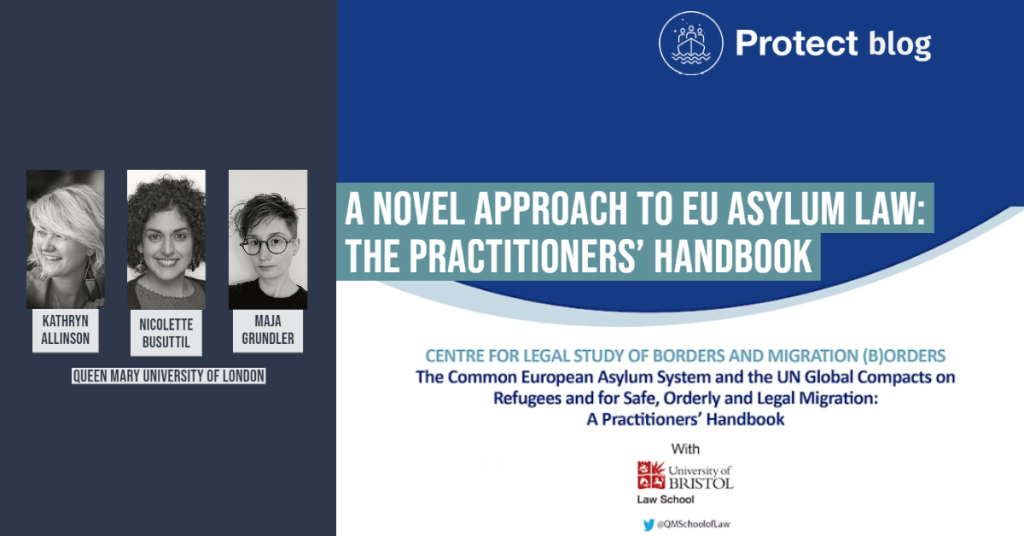
November 2022: The PROTECT Project’s Work Package 2 studies the potential legal impacts of the Global Compact on Refugees (GCR) and the Global Compact for Safe, Orderly and Regular Migration (GCM) on the functioning of the international refugee protection system. A recent publication, the Handbook, was launched on 27th September at an event, where the Handbook authors – Professor Elspeth Guild (QMUL), Dr Kathryn Allinson (University of Bristol), Dr Nicolette Busuttil (University of Westminster) and Dr Maja Grundler (Royal Holloway University of London) examined how EU Member States (and associated states) can apply the CEAS in a manner consistent with GCM and GCR commitments, with leading experts in the field providing their insights and expertise.
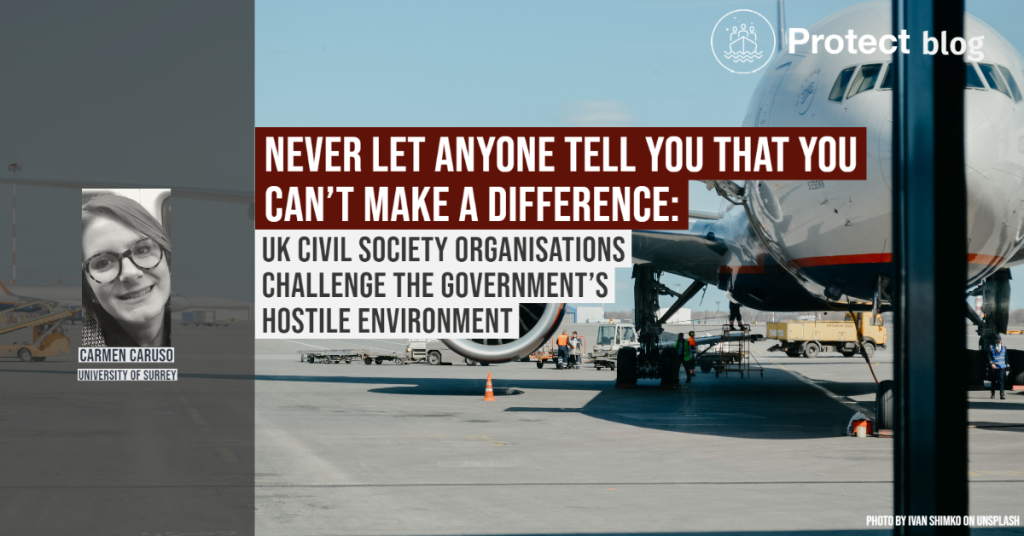
November 2022: Following a campaign by UK grassroots and civil society organisations, the Privilege Style Airline contracted to fly deportation planes to Rwanda has pulled out from the deal. The news has been welcomed by human rights groups. However, the momentary sense of relief this offers only represents half of the story. In this blog post Carmen Caruso (University of Surrey) looks at the hostile environment in its symbolic and material implications, considers some of the measures which fall, overtly or covertly, within an overarching security-oriented standpoint and the concerns therein.
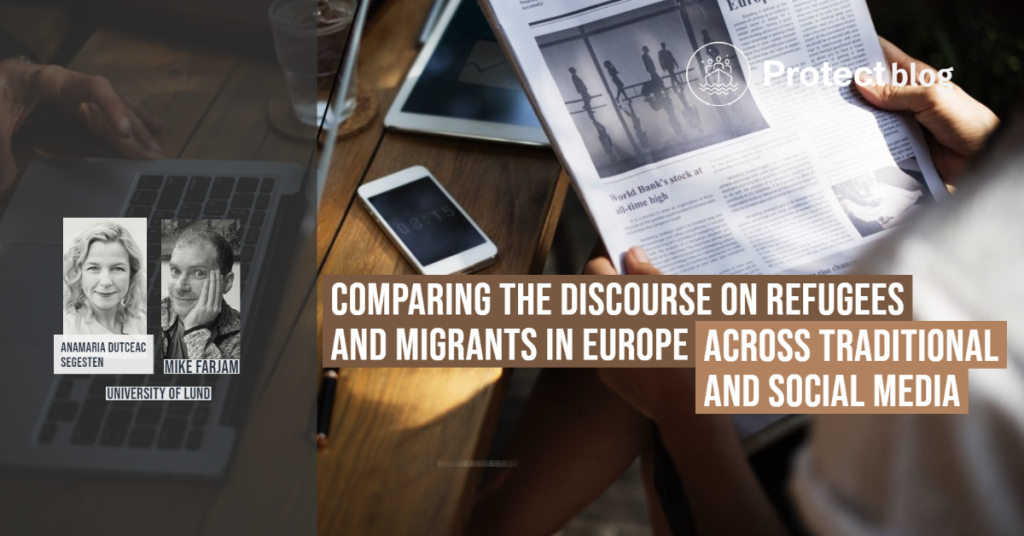
October 2022: Social and traditional media have very different goals, ways of presenting information, and audiences when they discuss migration and refugees. In this blog, Anamaria Dutceac Segesten and Mike Farjam from Lund University summarize the results of their comparative analysis of the two types of media, across nine languages, with respect to content about the so-called “migrant crisis”.
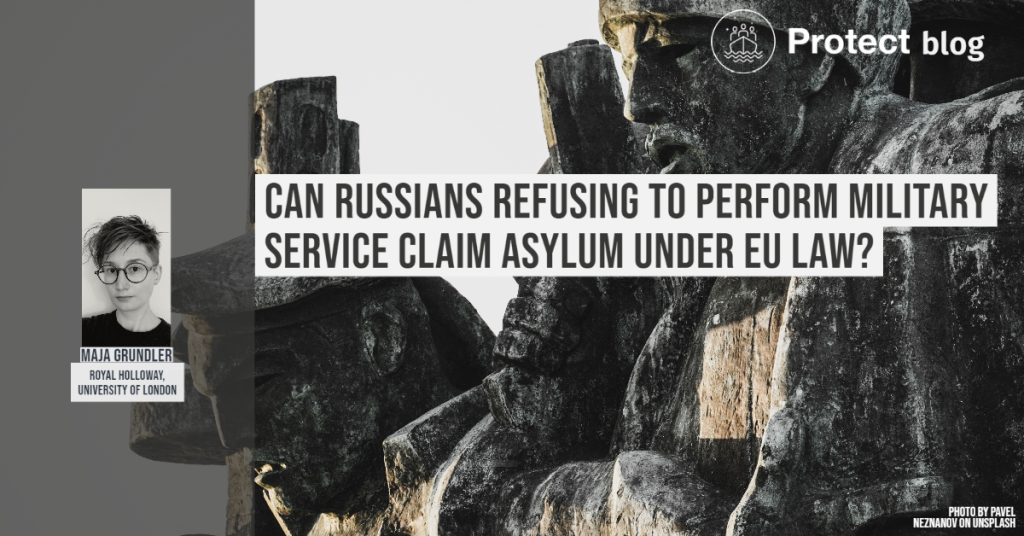
September 2022: Following Russia’s announcement of a partial mobilisation of 300,000 Russian personnel on 21 September 2022, thousands of Russian men of fighting age are seeking to leave the country. Long queues were reported at border crossing points with Georgia and Finland, while wealthy individuals reportedly pay up to £25,000 for a seat on a private plane to Armenia, Turkey or Azerbaijan. But can individuals fleeing military service in Russia be recognised as refugees under EU law? Read how our researcher, Maja Grundler from Royal Holloway (University of London), answer this complex question, based on her latest PROTECT policy brief with Elspeth Guild from the Queen Mary University of London.
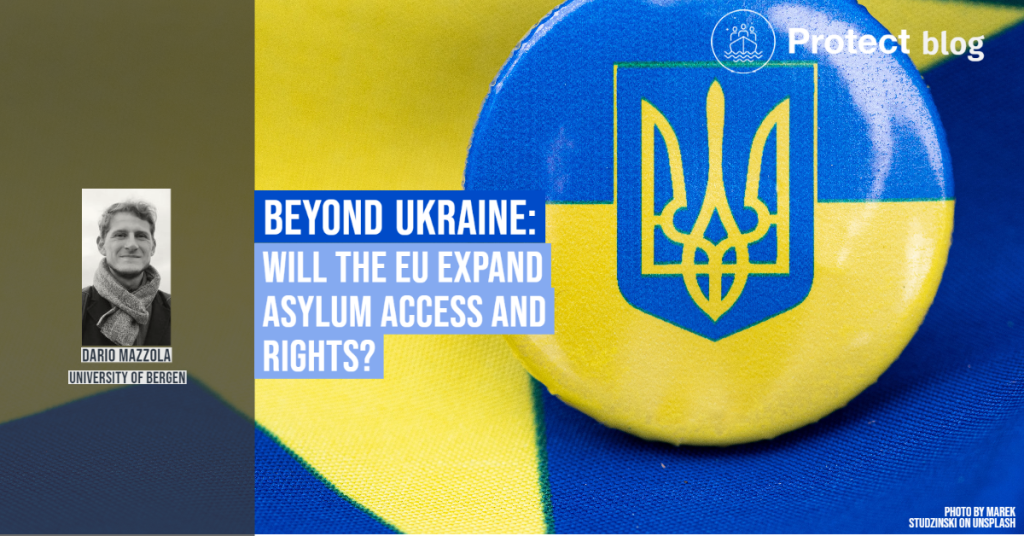
July 2022: Among the dire consequences of Russia’s invasion, observers have noticed that at least the open reaction to asylum seekers might represent a step forward. At the same time, they have noticed that the preferential treatment of the Ukrainians fleeing war could call into question the fairness of the EU’s asylum policy. Yet, as Dario Mazzola from the University of Bergen points out in this blog, besides structural racism and political interest, other substantial obstacles impede welcoming more refugees from all over the world in present circumstances.
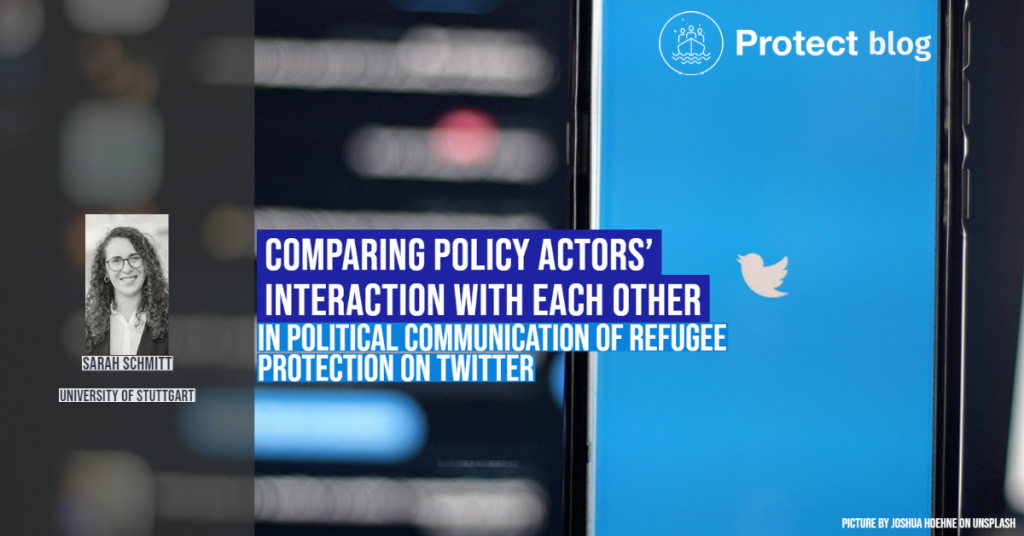
April 2022: Opinions of policy actors on migration and refugee policy are increasingly polarized due to the various economic and migrant “crises” and social media has become a political communication site in which governments have a massive interest to be present. Therefore, in this blog, Sara Schmitt from the University of Stuttgart is interested in the question, whether and how policy actors reach out to a broader mass of organizations beyond national communication spaces.
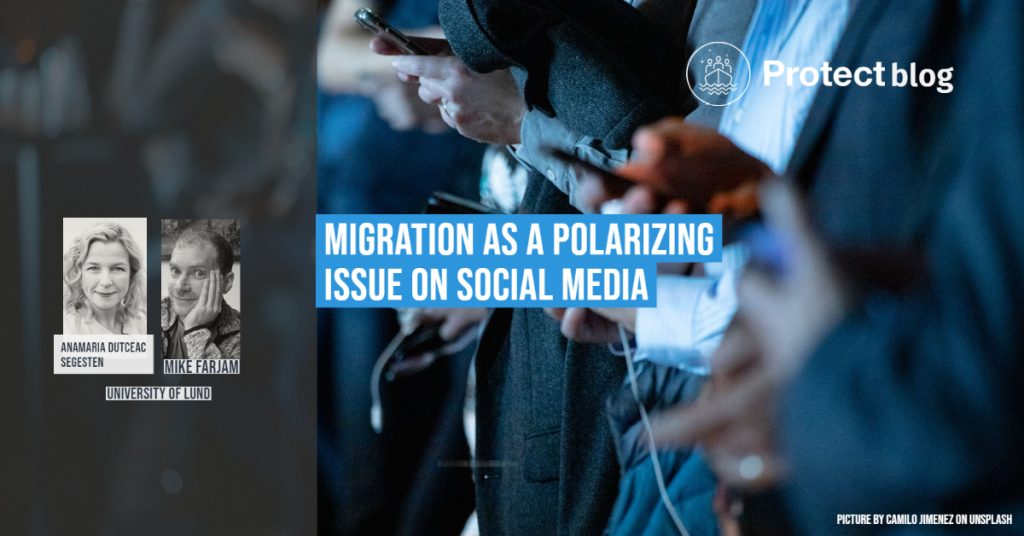
March 2022: In this blog post, Anamaria Dutceac-Segesten and Mike Farjam from Lund University, study social media posts between 2015-2019, with the aim to 1) map the discourse surrounding issues of migration, asylum, and refugees and, 2) to identify the role of specific actors, such as politicians and NGOs, the different platforms, and language specificities within the discourse.
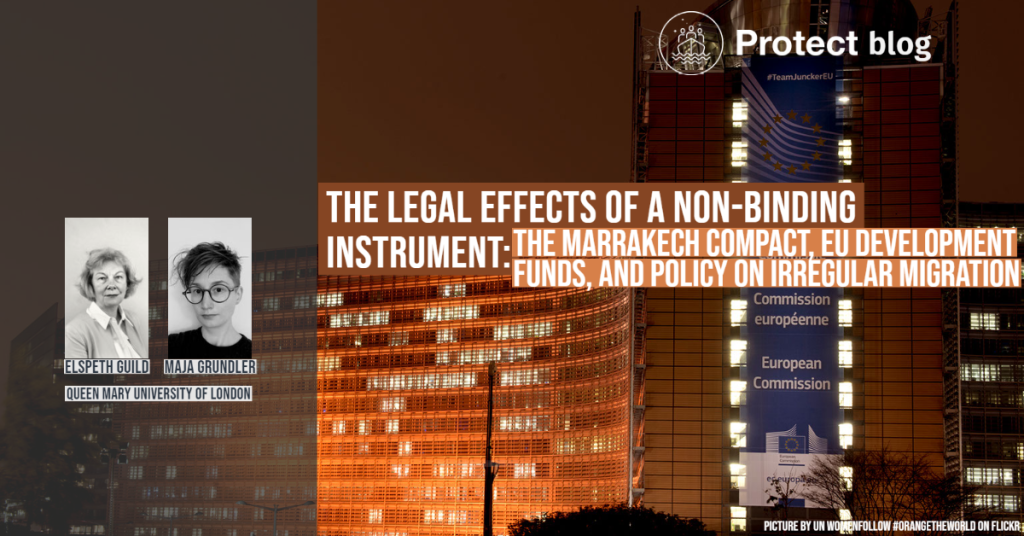
February 2022: In this blog post, Maja Grundler and Elspeth Guild (Queen Mary University of London) look at a leaked 2019 document produced by the European Commission’s legal service suggesting that the Marrakech Compact has ‘legal effects’ on EU development policy. They consider the Commission legal service’s arguments regarding the legal effects of the MC.
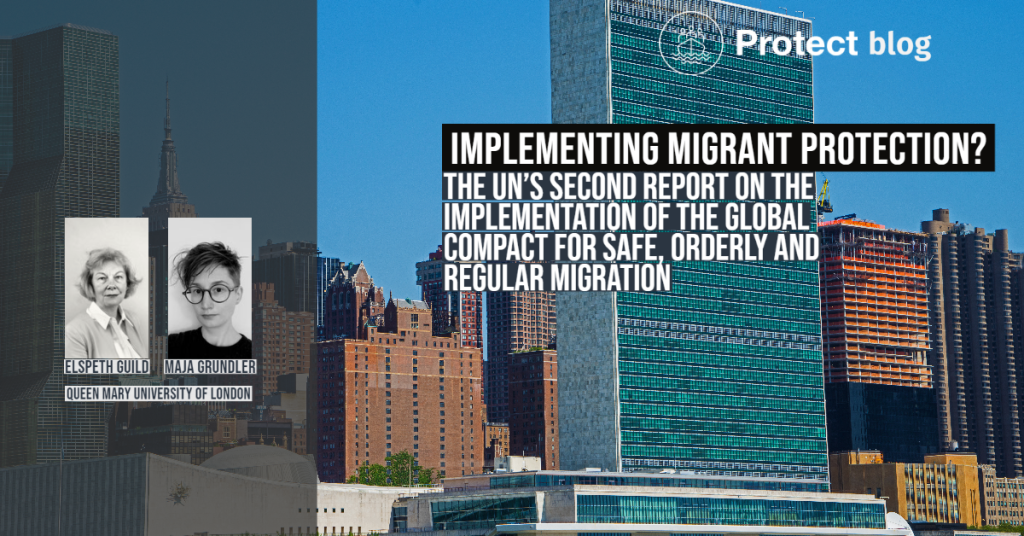
January 2022: In this blog post, Maja Grundler and Elspeth Guild (Queen Mary University of London) discuss the United Nations Secretary-General’s second Report on the Global Compact on Safe, Orderly and Regular Migration, more closely the Report’s approach to monitoring the implementation of the Marrakech Compact (MC). They argue that more explicit engagement with the MC’s objectives and detailed provisions, as well as concrete suggestions for actions for achieving, and criteria for measuring, progress should be the focus of future implementation reports.
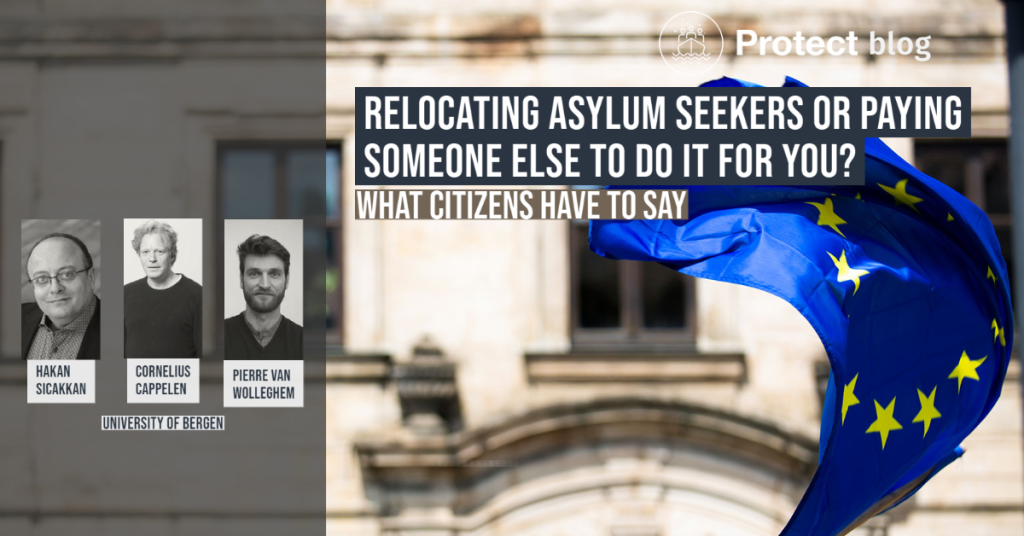
November 2021: Relocation of asylum seekers has been at the heart of fierce controversies over the past decade. Governments’ worries over migration is not a new phenomenon insofar as migration has become a subject of electoral competition, a topic on which one gains or loses votes, and perhaps even elections. That being said, migration and asylum are two distinct policy issues and public attitudes towards migration and towards asylum may very well differ, as recent scholarship suggests. This blog-post poses a series of questions that Cornelius Cappelen, Hakan Sicakkan and Pierre Van Wolleghem tries to answer through a survey conducted in the framework of WP6.
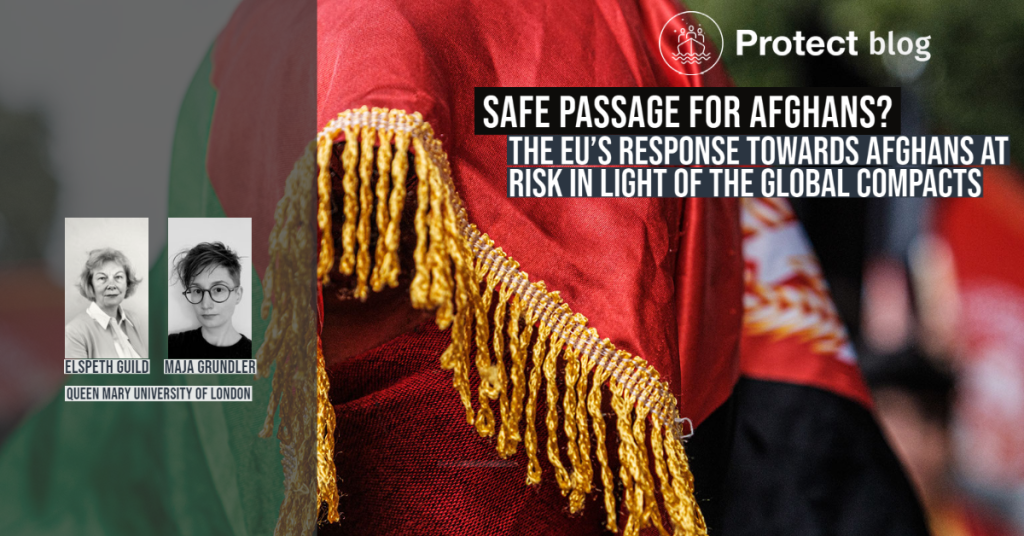
November 2021: Since the end of organised evacuations of Afghan nationals by aircraft through Western forces following the “fall of Kabul”, many civilians remaining in the country are at risk of serious harm and persecution at the hands of the Taliban. Meanwhile, those Afghan nationals who have managed to flee to neighbouring countries face a lack of access to regular onward migration and international protection. In this blog post, Maja Grundler and Elspeth Guild explore EU Member States’ response towards Afghan nationals at risk in light of the Global Compact on Refugees and the Global Compact for Safe, Orderly and Regular Migration.
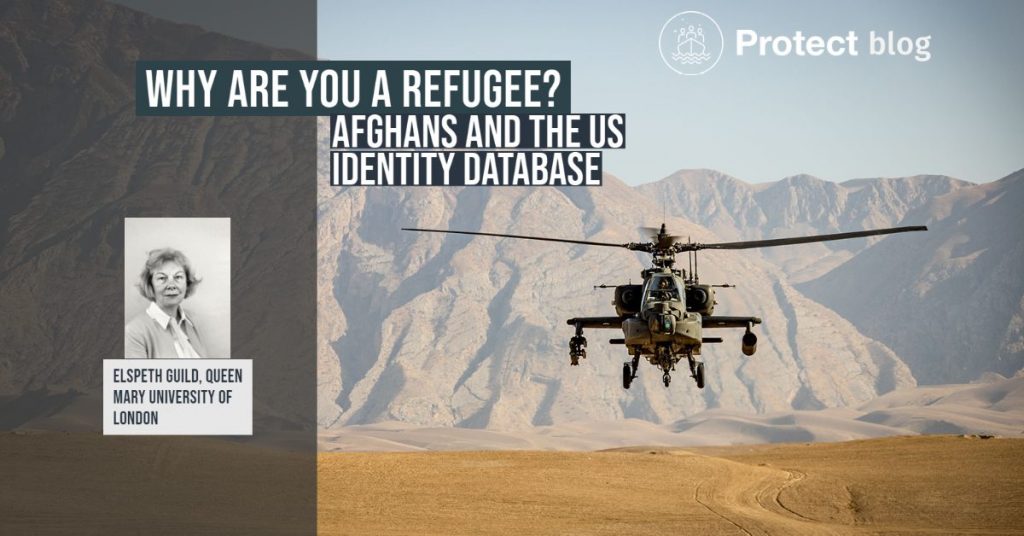
September 2021: In this blog Elspeth Guild and Didier Bigo look at how the US identity database of Afghans is already creating refugees. The Taliban has taken access to the databases and may already have access to the US database indicating who was working for them in what capacities and who they considered ‘terrorists’.
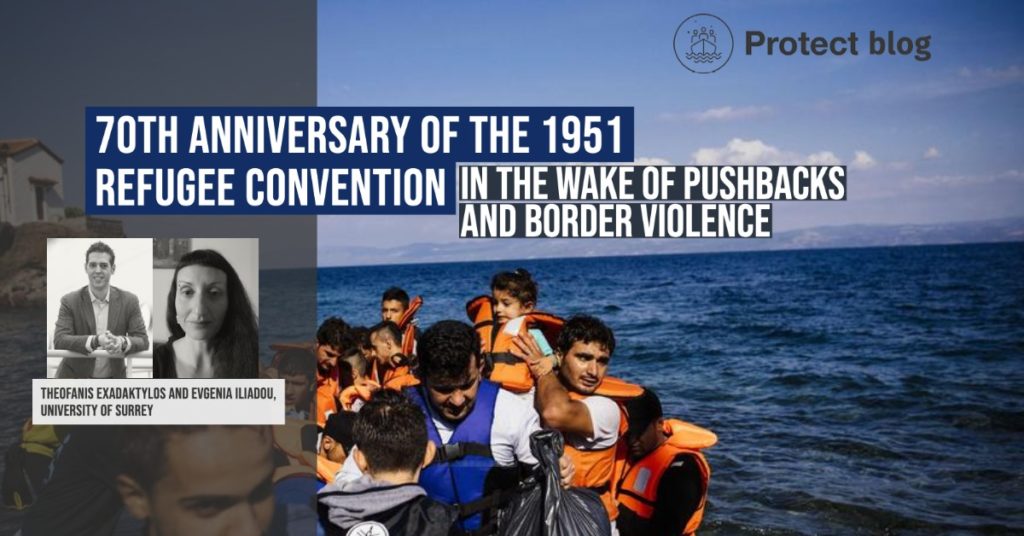
August 2021: Considering the numerous occasions of violation of the Convention rules, even by countries who are proponents and champions of human rights, the role of the Convention in regulating issues of international protection becomes pivotal in ensuring the adherence to basic rules. Despite the legal (and moral) obligations towards forcibly displaced people, states systematically disregard or circumvent the 1951 Geneva Convention and the principle of non-refoulement in direct breach of European and International law. Greece is an indicative example in this respect and an illustrative case study.

July 2021: When the pandemic started to spread across the EU, like many other Member States, Portugal had a substantial backlog of migration and asylum-related applications. Unlike numerous other Member States, instead of simply closing registration centres and de facto turning reception centres into detention centres, Portugal chose another route: temporary regularisation. Any migrant or asylum seeker who had a pending application on 20 March 2020 was automatically granted a status which included equal treatment with Portuguese nationals as regards work, education, access to health services and social services, including housing and social benefits.

June 2021: Despite the pandemic, the number of people fleeing wars, violence, persecution, and human rights violation in 2020 rose to nearly 82.4 million people, according to UNHCR`s latest annual Global Trends report. To mark World Refugee Day on 20 June, the sister projects PROTECT, Vulner and Asile come together to reflect upon the state of intenational protection in 2021.
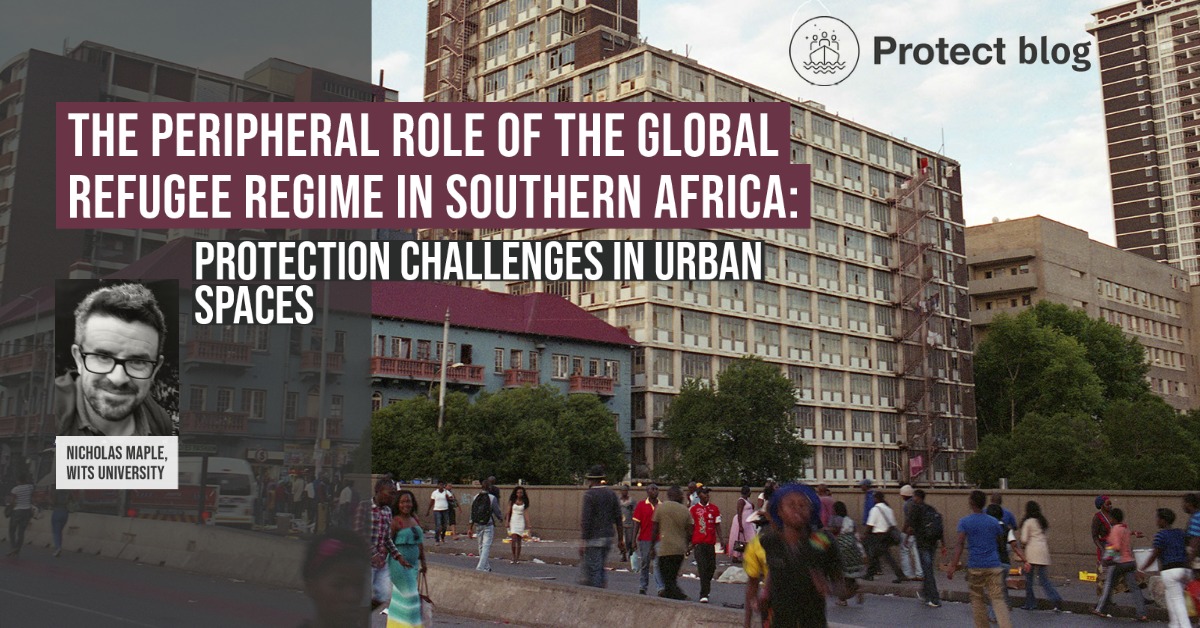
June 2021: To this day, UNHCR continues to struggle to adapt programming and interventions specifically for the urban space, and protection concerns remain in urban spaces in South Africa and Zambia. The overarching approach by UNHCR in southern Africa, in combination with similar non-interventionist state-based policies, means most urban refugees are simply left to negotiate protection and find alternative forms of reception at the local community level. While many refugees choose to avoid state and international actors and instead self-settle and remain ‘invisible’ in cities such as Johannesburg, they have little choice in the matter.
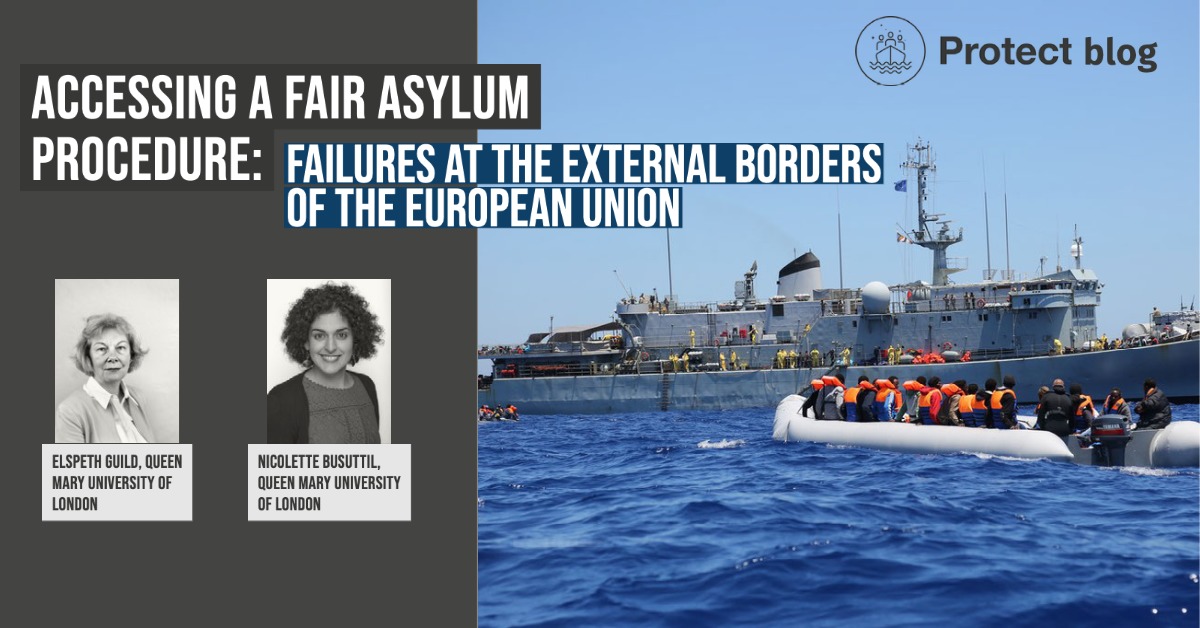
June 2021: Just as Frontex and national border guards are intensifying their coordination of external border controls, it is time to investigate how, whether and under what conditions, national fundamental and human rights bodies can cooperate and coordinate to provide the necessary counterbalance to the coordination of border controls. Ending the seemingly endless litany of deaths and human rights abuses occurring in or around external border operations of EU and Member State agencies (or through failure to act) is the only principled way forward that is in line with States’ commitments to respect, promote, and fulfill the human rights of migrants and refugees.
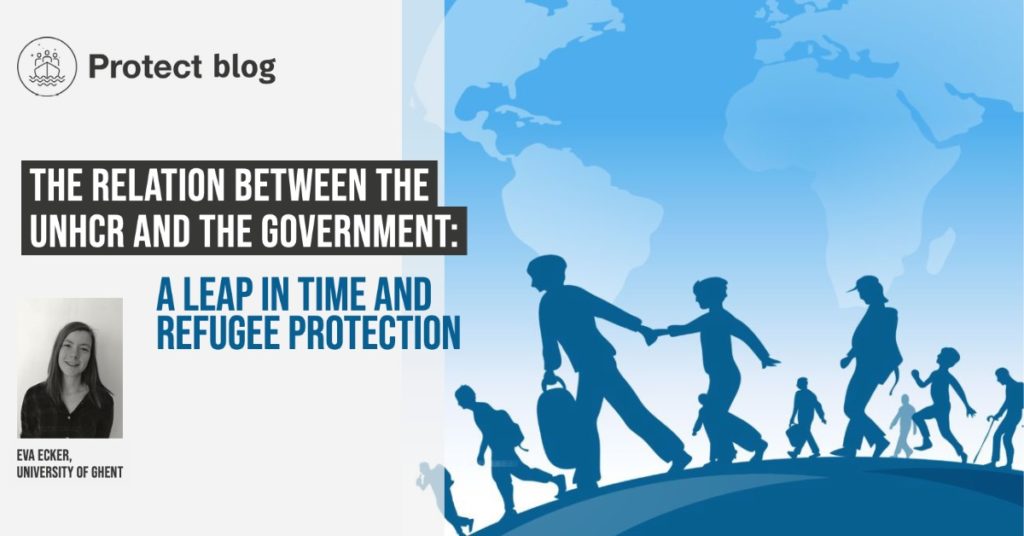
May 2021: Throughout its history, by trial and error, UNHCR has acquired the skills to negotiate with individual states and convince them that refugee protection is in the interests of individual refugees, but also of states and the global community. By analyzing the history of refugee protection we can understand better the fortunes of the international refugee regime. Through a leap in time, this blog is looking into how in the Netherlands’ refugee policy was being discussed during the 1970s and we compare it with the negotiations surrounding the GRC. Thus, we show that UNHCR has come a long way in strengthening its negotiating position, and how this impacts refugee protection is still an open issue.
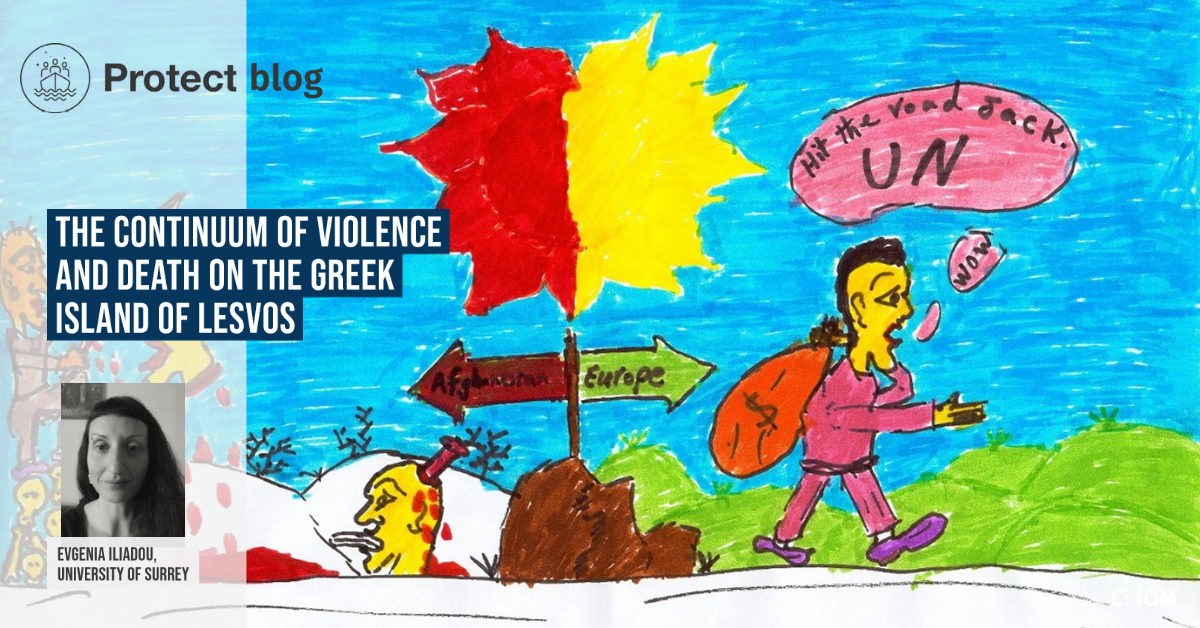
April 2021: Since early 2000, I worked as an NGO practitioner in refugee camps and detention centres by providing social support to forcibly displaced persons. I worked in many different sites of confinement in border zones in the Greek mainland and on the islands, notably in Lesvos. I was also actively involved in grassroots movements supporting refugees who were reaching Lesvos for more than a decade. Those experiences were often shocking, traumatic, and life-changing as over time and through my different positionalities (a female researcher, former NGO worker, activist, local) I had the chance to witness first-hand the harmful and life-threatening conditions in which refugee populations were forced to live inside detention centres and refugee camps. The living conditions that refugee populations endured were appalling and tantamount to cruel, inhumane, and degrading. Over time I heard and recorded several accounts and testimonies by refugees related to border violence, including torture, sexual violence, human trafficking, state violence, and pushbacks.
Photo and Copyright: Evgenia Iliadou
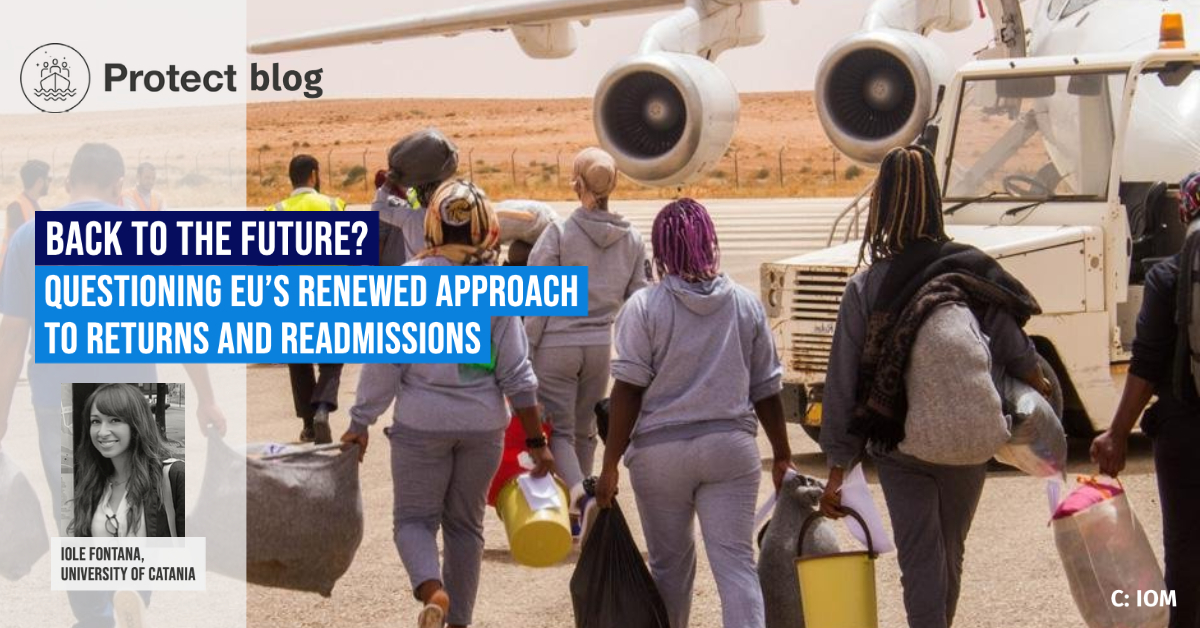
April 2021: While the involvement of countries of origin and transit in the management of migratory flows is nothing new for EU migration policies, the New Pact on Migration and Asylum relaunches the cooperation with third countries as an old but gold element to a fresh start. In a quest for reinforced cooperation with external partners, returns and readmission are identified as aspects of crucial relevance to the proper functioning of migration and asylum policy inside the EU, building on the idea that: ‘EU migration rules can be credible only if those who do not have the right to stay in the EU are effectively returned’.
Photo: IOM
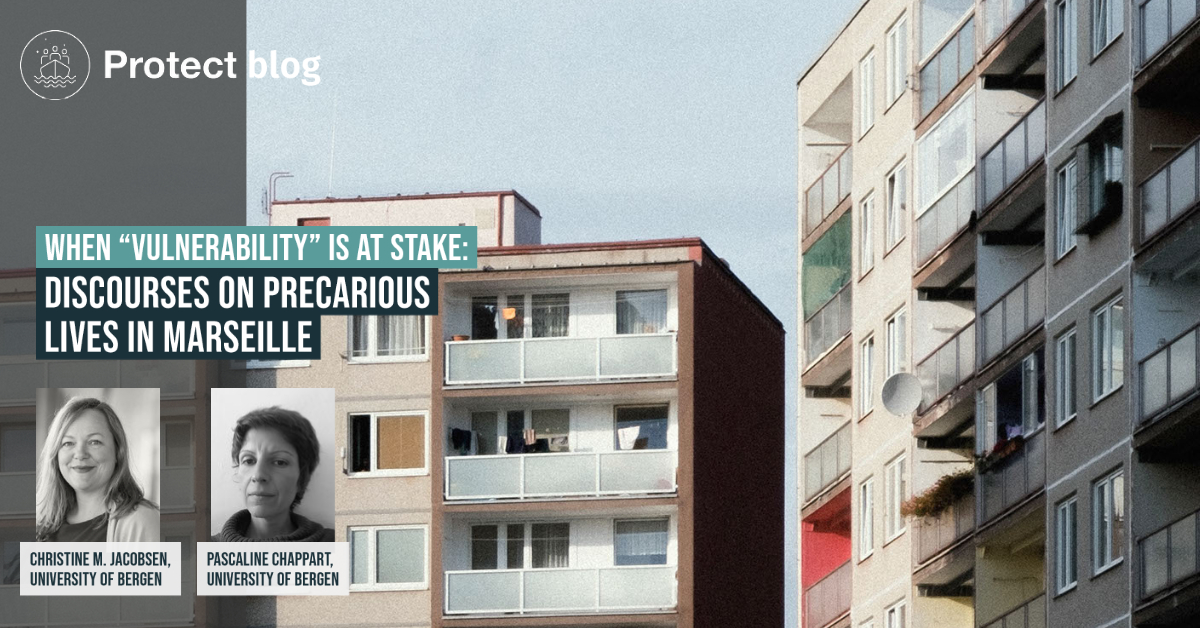
March 2021: Last November, as France was envisaging a gradual exit from its second national COVID-lockdown, the police evacuated several apartment buildings in the Petit Séminaire low-income apartment blocks (HLM) in the Quartiers Nord of Marseille, one of the poorest suburbs in Europe. The city council had previously issued a decree of imminent danger due to the unsafe condition of the buildings. For several months, the flats had been squatted by between 150 and 300 West- African asylum seekers and undocumented migrants. This eviction allows us to unpack some dimensions of vulnerability in the French socio-political context and perhaps provide answers to what it takes to be ‘vulnerable person’ when you are an asylum seeker or an undocumented migrant.
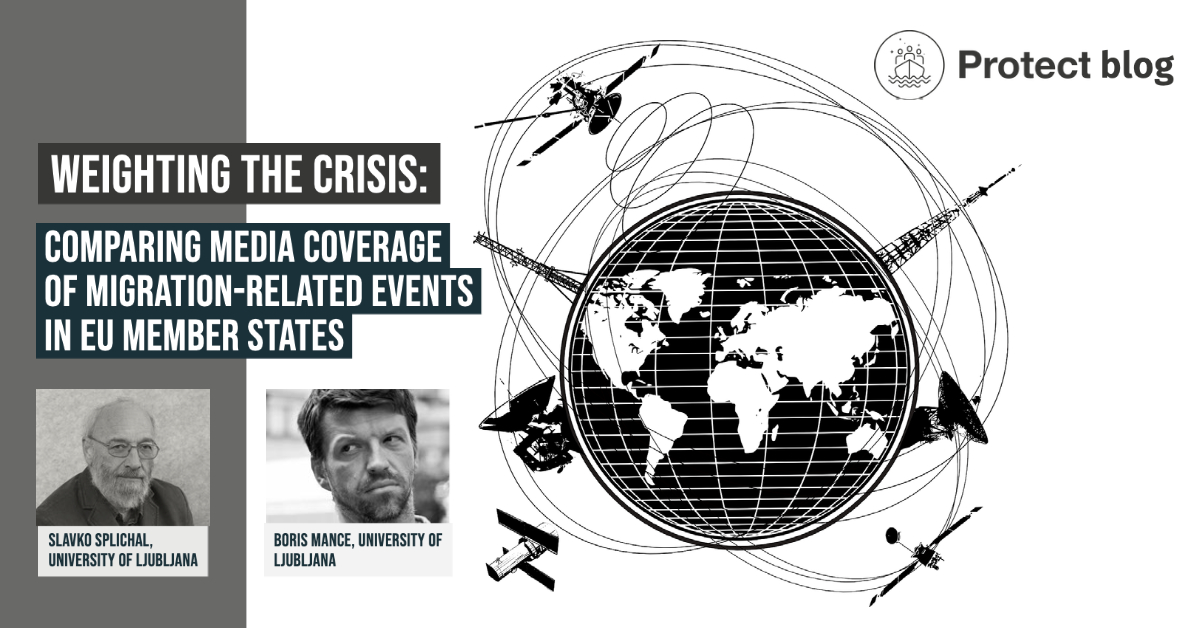
February 2021: The migration crisis proved to be not only one of the biggest humanitarian catastrophes of the past decade in Europe but also one of the most salient media-covered eventsi. But when comparing the media coverage of migration-related issues and events in the aftermath of the crisis, some national idiosyncrasies are revealed – particularly between countries at the EU’s external borders and central European countries. Slavko Splichal and Boris Mance present some preliminary data from PROTECT’s media research.
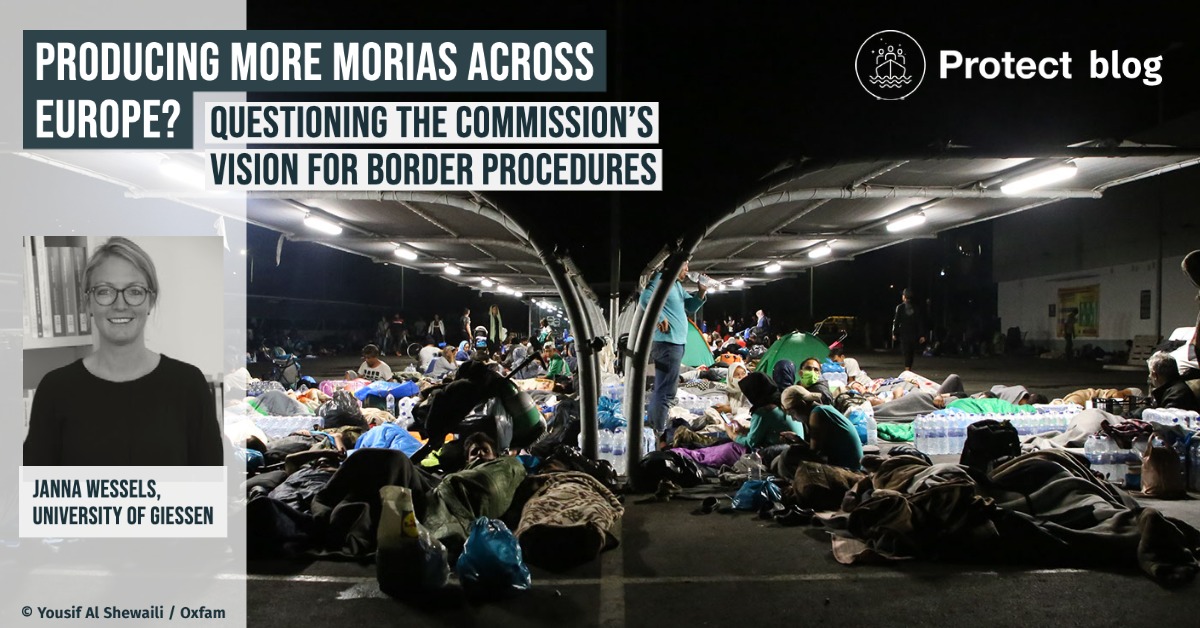
January 2021: The European Commission’s vision for border procedures ‘risks to foster the model of large hosting centres, especially in countries tasked with controlling the external borders of the European Union’. Although the proposed Asylum Procedures Regulation does not prescribe closed asylum centres, it makes the use of area-based restrictions mandatory – without outlining concrete measures as to how this is to be achieved. As it currently stands, the Commission’s proposal risks producing more Morias across Europe.
Photo: Yousif Al Shewaili / Oxfam
Graveyards of Human Rights: some thoughts on the refugee camps on Lesvos in light of the UNHCR’s 70th anniversary
December 2020: Cases of sexual violence inside refugee camps are often presented as if they were tragic accidents, or natural and isolated events. However, sexual violence is endemic to refugee camps and it has escalated over time. Despite these facts, evidence and warnings, refugee populations are systematically abandoned into structurally harmful environments which not only allow, but also create the conditions for such atrocious acts of violence to take place.
Photo: Yousif Al Shewaili/ Oxfam
Who says what? Studying social media discourses on international protection
December 2020: Who’s mentioned more frequently in social media posts related to refugees and migrants: Angelina Jolie, Pope Francis, or Donald Trump? Which political leaders appear more frequently? Which organizations do people talk about in relation to migrants and refugees? In this vlog, Anamaria Dutceac Segesten presents some of our preliminary data on social media discourses surrounding refugees and migrants.
Minors and shipwrecks in the Mediterranean: a never-ending story
November 2020: Youssef and Alan are only two of too many children who have lost their lives on the move in recent years. The International Migration Organization (IOM) reported that 337 children have died while migrating in Africa between 2014–2018, 200 of them died as a result of drowning in the Mediterranean sea. However, this number does not reflect the grim reality: according to IOM, over 70 per cent of people whose deaths were reported in the Central Mediterranean between 2014 and 2018 were never found.
Implementing the Marrakesh Compact for Safe, Orderly and Regular Migration: commentary on the IOM Regional Meetings 11 – 12 November
November 2020: On 11 and 12 November 2020, IOM is hosting a regional meeting of UNECE countries (56 countries in Europe and North America) to examine progress on the Marrakesh Compact. Many states have submitted reports on their actions (though far from all in the region) and many IOs and other stakeholders have made submissions for consideration. In this blog, after examining the structure of the meeting, I will look specifically at the submission by the EU outlining how it has sought to comply with the Compact objectives.
Photo: Unsplash
How do we talk about migration and asylum issues on social media?
October 2020: Asylum and migration policy are highly contested, emotional and ideologically fragmented issues, especially in times when migratory numbers are high. Analyzing social media discourses on migration and asylum issues can reveal new cleavages in society, political polarization and ideological fragmentation – and help us understand how discourses differ across different social media platforms.
Photo: PROTECT
Migration Flows to Europe: A New Tunisian Exodus
October 2020: In Tunisia, deterioration of the economic situation, a rising unemployment rate, and the reduction of civil rights are currently causing a new flow of Tunisian migrants heading for Italy, seeking both work and safety in Europe. The silent, growing, and continuous exodus from Tunisia is a new form of migration that should spark a revision of international norms on international protection and a new form of migration governance aiming at capturing determinants, processes, and outcomes of the actual migration. What can the Tunisian exodus teach us about current protection needs?
Canada’s response to the Global Compacts on Refugees: Are we doing enough?
October 2020: Of the 107,800 refugees resettled in 2019, only 30,100 were welcomed by Canada. Although it is often lauded on the world stage for its resettlement policies, Canada can significantly improve its promotion of comprehensive and effective solutions to forced displacement.
What’s new in the New Pact on Migration and Asylum?
October 2020: In the New Pact possibilities for solidarity through relocation are widened and complemented by ‘return sponsorship’ schemes, under which a Member State should commit to support returns from another one. What seems to be missing, however, are the new incentives for EUMS to get engaged in this pact.
Reigniting the Migration and Asylum Debate: Comments on the Commission’s Proposal
September 2020: It is precisely by aiming at the center of a very polarized political spectrum, and by presenting itself as a compromise, that the proposal can hope to spark a fruitful debate. Any expansive or restrictive suggestion from the angle of Northern, Eastern, or Southern states would be immediately dismissed by the opposing fringe.
A Greek Tragedy in Moria: Asylum Seekers without Durable Solutions
September 2020: If the Greek authorities were to work faster, more than half of the asylum seekers on Moria would no longer be asylum seekers subject to detention conditions but refugees, or beneficiaries of international protection. However, at the rate at which Greek authorities are making decisions on asylum applications in comparison with the numbers they are receiving each year, it will be a very long time before many asylum seekers can hope to be recognised as a refugee.
The (lack of) EU migration policy on fire: What can be learned from the Moria disaster?
September 2020: The pandemic has worsened living conditions for migrants and refugees significantly – not only in refugee camps like Moria, but everywhere in EU countries. COVID-related health emergency measures have diverted both funds and consideration – and government policies have turned more intolerant, placing migrants in a limbo, with no rights or assistance, no access to testing or health and social facilities. The virus seems to have offered an excuse to legitimize government policies aiming at closing borders and causing exclusion. In steps NGOs, who have provided refugee relief in the absence of the state.
Disaster Foretold: Refugees in Moria at risk after fires. What now, EU?
September 2020: As much as the Greek state tries to present the fire and misery that unfolded as an unpredictable event and a state of emergency, this disaster was preventable, foreseeable and, therefore, foretold and avoidable. It is the outcome of a series of inadequate and patchy political decisions as well as the largely exclusionary, discriminatory and deterrent policies.
Photo: Yousif Al Shewaili / Oxfam
The Global Compacts and the Long Journey of the Refugee Regime
August 2020: From the definition of refugees to the practical implementation of the right to asylum, refugee regimes are an issue leading to sharp political divisions or outright stand-off in a number of countries. Is this no-exit-road impression the truth of the matter, and what are the prospects of the Global Compact in this not-so-rosy scenario?
“The US is not safe for asylum seekers” – Federal Court of Canada strikes down the Canada-US Agreement
July 2020: The Federal Court of Canada has determined that the Canada-US Safe Third Country Agreement (STCA) infringes upon asylum seekers’ right to international protection and has given the Parliament six months to take necessary action. Until then, Canada can continue handing over asylum seekers to the US officials, exposing them to arbitrary detention and the possibility of immediate deportation to where they have fled persecution or other life-threatening situations. The Federal Court should rescind the STCA immediately, not six months from now, say PROTECT researchers, Idil Atak, Zainab Abu Alrob and Jona Zyfi in this blog piece.
What does the new EU budget have in store for migration and asylum? The effect of crises on EU spending
July 2020: On 21 July 2020, after four days and nights of intense negotiations, EU leaders reached an agreement and announced the new Multiannual Financial Framework (MFF). As far as migration and border policy are concerned, the new MFF as agreed upon by the European Council looks little like the budget the Commission had in mind in the first place.
What now for the 1951 Refugee Convention?
June 2020: The impact of the New York Declaration and the Global Compact on Refugees (GCR) on the 1951 Convention on the Status of Refugees (including the 1967 Protocol) is only just now beginning to become visible. From our perspective, the most important development the GCR constitutes is the alignment of refugee rights with human rights. The GCR commitments link together refugee protection and human rights in a UN instrument which, while not legally binding, sets out the common will of the international community.
The lived racism of refugees and migrants – and the actions of you and me in the battle ahead
June 2020: The world is in an uproar following the death of George Floyd in Minneapolis on 25 May 2020. In outrage and desperation, demonstrators worldwide have taken to the streets to protest – denouncing the racism and discrimination towards black populations which is still deeply embedded in all layers of society. Racism is also one of the most widespread and devastating experience refugees, asylum seekers and migrants face on their journey to find a new home – and it is alive and well.
The challenge of making academic research feed into policy debates: three lessons to take away from the Brexit process
May 2020: Academics play a significant role in public policy debates providing both governments and citizens with evidence-based advice and encouraging dialogue and curiosity. But researchers’ engagement should not be a one-way street: academics also have to make sure they listen carefully to the needs of the public and provide them with advice and research of real use. Three main lessons from the Brexit process might help us along the way.
Detention of refugees, asylum seekers and migrants under Corona lockdown risks becoming arbitrary
May 2020: As the Covid-19 pandemic has tightened its grip on many western states, many refugees, asylum seekers, and migrants continue to be detained in reception and detention centres, without any prospect of release. With asylum processing at a standstill and returns to countries of origin on hold, detention of these individuals risks becoming arbitrary, if not inhumane, write Elspeth Guild and Kathryn Allinson in this blog post.
As the Corona pandemic worsens, EU borders shut down: “A new low point for the EU’s respect for refugee rights and international law”
April 2020: Human rights in international law and the EU Charter are not dispensable in times of pandemics. They are essential characteristics and integral to promoting the European Way of Life which “is founded on the values of the respect for human dignity, freedom, democracy, equality, the rule of law and respect for the human rights, including the rights of persons belonging to minorities.”, Elspeth Guild and Kathryn Allinson write in this blog post.
How is the Corona pandemic affecting the lives of refugees, asylum seekers, and migrants in Greece and Italy? Two Protect researchers share their insights
April 2020: In this blog post Dr. Theofanis Exadaktylos from University of Surrey and Professor Francesca Longo from University of Catania address the situation for refugees, migrants and asylum seekers in Greece and Italy amidst the ongoing Covid-19 pandemic.
Photo: Colourbox & University of Surrey

How is the Corona pandemic affecting the lives of refugees, asylum seekers, and migrants in South Africa and Canada? Two Protect researchers share their insights.
April 2020: This is one of two blog posts where Protect researchers reflect upon how the Corona pandemic is affecting people on the move across the world. In this post, Professor Jo Vearey from Wits University and Professor Idil Atak from Ryerson University share their insights from South Africa and Canada.
Photo: Colourbox & PROTECT
How do shut borders affect the lives of people on the move?
March 2020: In this blog post Professor Elspeth Guild reflects upon how shutting Europe’s internal and external borders amidst the Covid-19 outbreak might pose a threat to human rights. Professor Frank Caestecker looks at how pandemics throughout history have led to stricter border control and xenophobia.
Photo: Colourbox, Kingsley Napley, & DeMorgen

